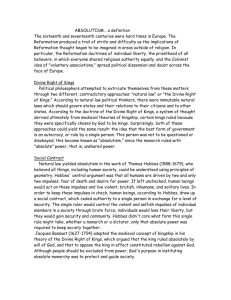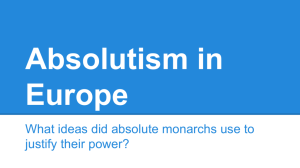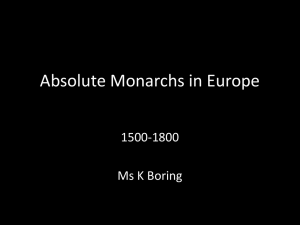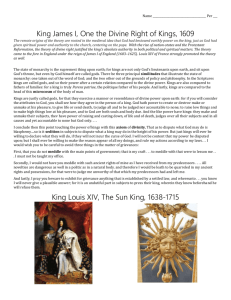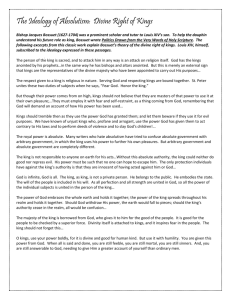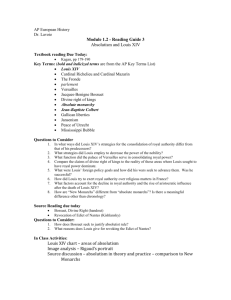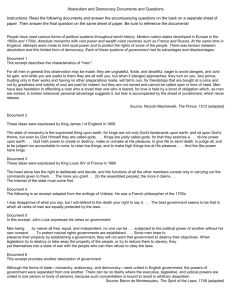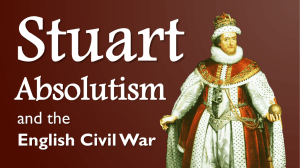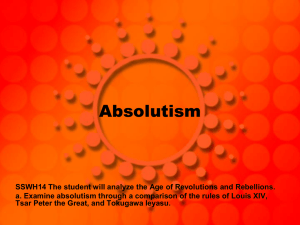Absolutism in France (Overview)
advertisement
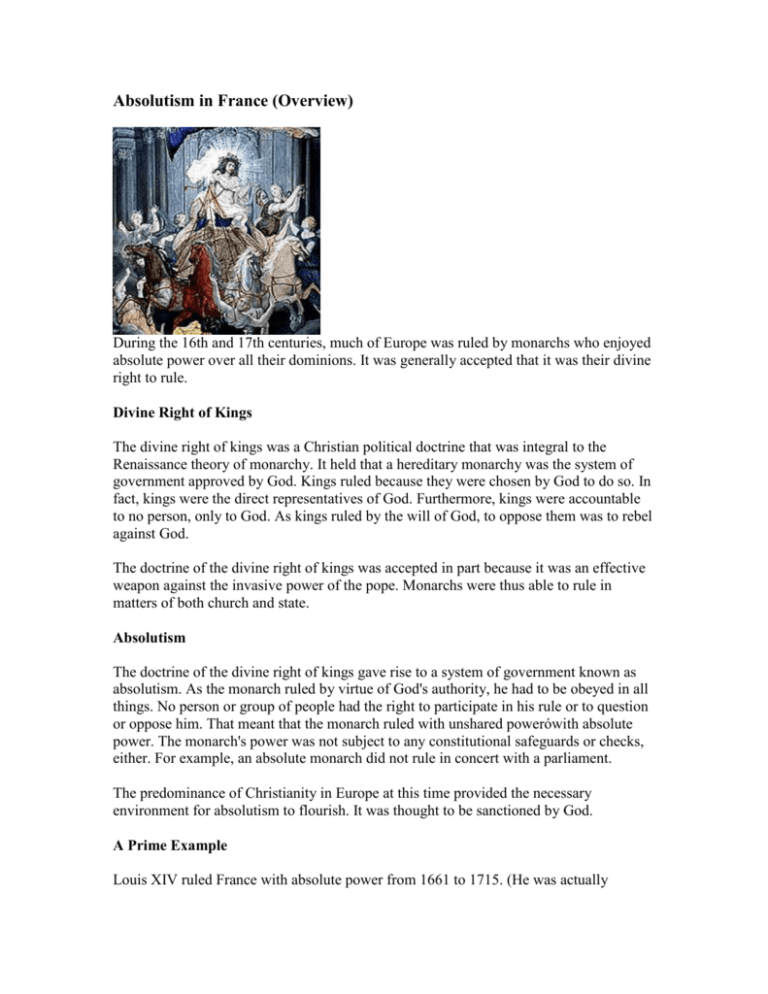
Absolutism in France (Overview) During the 16th and 17th centuries, much of Europe was ruled by monarchs who enjoyed absolute power over all their dominions. It was generally accepted that it was their divine right to rule. Divine Right of Kings The divine right of kings was a Christian political doctrine that was integral to the Renaissance theory of monarchy. It held that a hereditary monarchy was the system of government approved by God. Kings ruled because they were chosen by God to do so. In fact, kings were the direct representatives of God. Furthermore, kings were accountable to no person, only to God. As kings ruled by the will of God, to oppose them was to rebel against God. The doctrine of the divine right of kings was accepted in part because it was an effective weapon against the invasive power of the pope. Monarchs were thus able to rule in matters of both church and state. Absolutism The doctrine of the divine right of kings gave rise to a system of government known as absolutism. As the monarch ruled by virtue of God's authority, he had to be obeyed in all things. No person or group of people had the right to participate in his rule or to question or oppose him. That meant that the monarch ruled with unshared powerówith absolute power. The monarch's power was not subject to any constitutional safeguards or checks, either. For example, an absolute monarch did not rule in concert with a parliament. The predominance of Christianity in Europe at this time provided the necessary environment for absolutism to flourish. It was thought to be sanctioned by God. A Prime Example Louis XIV ruled France with absolute power from 1661 to 1715. (He was actually crowned in 1643, at the age of five, but did not begin his personal reign until 1661.) He was the third king of the Bourbon dynasty. As a firm advocate of the divine right of kings and absolutism, Louis is said to have proclaimed, "L'état, c'est moi." ("I am the state.") In his view, he and the nation were one and the same. He ruled with unlimited power. He did not have a parliament. Once he was an adult, he did not allow any single minister or adviser to dominate. France became the dominant power in Europe during Louis' reign. Jean-Baptiste Colbert, his minister of finance, revived French trade, industry, and agriculture and established a strong colonial policy. The Marquis de Louvois, his war minister, built France's army into the finest fighting machine in all of Europe. During the reign of Louis XIV, France attained economic, political, and cultural brilliance. However, that brilliance was short-lived. In 1685, Louis, a devout Catholic, revoked the Edict of Nantes, which had protected the religious freedom of the French Protestants, who were known as Huguenots. Denied the freedom to practice their religion, the Huguenotsóhundreds of thousands of peopleófled the nation. With their exodus, France lost many of its skilled workers and business leaders. In addition, the seemingly endless series of unsuccessful expansionist wars that Louis engaged in placed the country in severe economic distress. Absolutism followed a tortured course in France through the remainder of the 18th century. It finally ended with the French Revolution and the beheading of the last Bourbon king, Louis XVI. A Brief Reign Overall, absolutism had a short reign in terms of the world's history. It was challenged and eventually defeated by the ideals that sparked both the American Revolution and the French Revolution. Select Citation Style: MLA "Absolutism in France (Overview)." World History: The Modern Era. ABC-CLIO, 2011. Web. 14 Nov. 2011. Definition: Divine Right of Kings: Explain: Absolutism: Describe the Edict of Nantes and the effect it had: Describe how France became the dominant power during Louis XIV’s reign:
